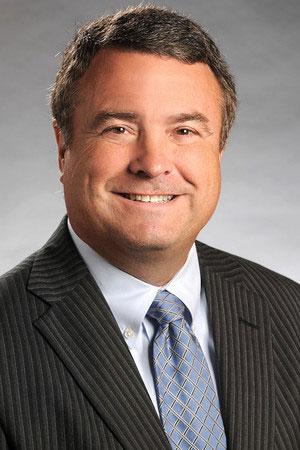Survivors Speak Out Against Bill Making Campus Rapes Harder to Report and Investigate
Update: HB 51 stalled Mar. 23 when a state Senate committee voted to table it.
Several videos of a hearing on House Bill 51, nicknamed the “campus rape bill” by some, recently made their way around social media. The videos show rape survivors speaking against the bill and controversial replies from some representatives.
On Feb. 23, a committee of Georgia House representatives gathered for a hearing on HB 51. The bill—introduced by Rep. Earl Ehrhart (R-Smyrna) and co-sponsored by Rep. Regina Quick (R-Athens)—would require victims of sexual assault on postsecondary campuses to either report the crime to the police or not say anything. It would also prohibit colleges and universities from investigating sexual assaults unless criminal charges are filed.

Ehrhart.
During the hearing, Ehrhart advocated on behalf of young men accused of sexual assault. "They will have the scarlet letter of a sexual assaulter,” he said. “Read To Kill a Mockingbird if you want to know who gets the short end of the stick.”
HB 51 has already passed the House. If it passes the Senate by the end of the legislative session Mar. 30 and is signed by Gov. Nathan Deal, this fall semester, students who have been assaulted will only be able speak to a few select people within the school—mainly lawyers and some licensed mental health professionals—if they don’t want the assault to be reported. Any teacher, coach, resident adviser or other campus staff they normally would confide in would be required to report the incident to law enforcement.
It also means that any school that is part of the University System of Georgia, the Technical College System of Georgia or a private institution will no longer be able to carry out interim disciplinary measures under the federal Title IX law, such as suspension or expulsion for the accused, or changing class and dorm assignments, before criminal investigation has begun. Schools ramped up such investigations (which treat sexual assaults as violations of the student code of conduct, not crimes) at the urging of the Obama Administration—guidance that the Department of Education under Secretary Betsy DeVos is expected to reverse.
Sally Sheppard, executive director of the Cottage Sexual Assault Center and Children's Advocacy Center, met with Quick to discuss the bill, along with representatives from the Cottage, Relationship and Sexual Violence Prevention at UGA and Athens for Everyone’s Sexual Assault Prevention Campaign. According to Sheppard, Quick, the only woman sponsoring the bill, didn’t understand rape dynamics, or that the bill was really about sexual assault rather than crime in general. She said the representatives also had no input from sexual assault centers or professionals in the field. (Quick did not respond to requests for comment.)
Georgia Artists for Progress, in collaboration with Atlanta-based artist Brock Scott, produced the two videos that have struck an angry chord with many who watched them and see the comments made by members of the committee as “truly outrageous,” as GAP said.
In one video, a student from Spelman College in Atlanta testified to the committee that “my freshman year, I lost my virginity though non-consensual sex… from my knowledge of the bill… we would be forced to report to a police officer.”
“So you’re not aware of what’s in the bill now,” she was asked. But according to the producers of the video, the updated version of the bill was released just moments before the hearing.
Charles Jones is a volunteer with Families Advocating for Campus Equality, an organization founded by the mothers of young men accused of sexual assault to advocate for them and to dismantle the university proceedings that handle sexual misconduct. After Jones stated that the trauma of being falsely accused is not unlike the trauma of being raped, the room filled with coughs and murmurs, to which Ehrhart responded, “If you feel triggered, trigger somewhere else.”
Another young woman spoke about her experience of being raped and choosing to speak to a professor about it because she was concerned about her grades, but not being prepared to report it to police. She told the committee, “If you pass this bill, you will take away our voice. If this bill is meant to protect us, then listen to us.”
The bill “takes away the power of the survivor,” said Sheppard. “It takes out of their control who finds out about the sexual assault.”
Few men are falsely accused, let alone falsely convicted, of sexual assault. According to the National Sexual Violence Resource Center, 37 percent of sexual assaults are reported to the police. Of those that are reported, 2–10 percent are estimated to be false. Even without a law like HB 51 that could have a chilling effect on reports, just 3 percent of sexual assaults are prosecuted, according to the Rape, Abuse & Incest National Network.
University System of Georgia spokeswoman Sonja Roberts declined an interview request, citing the bill’s pending status, except to say that “we appreciate Chairman Earl Ehrhart continuing to work with us to address our concerns with HB 51."












comments